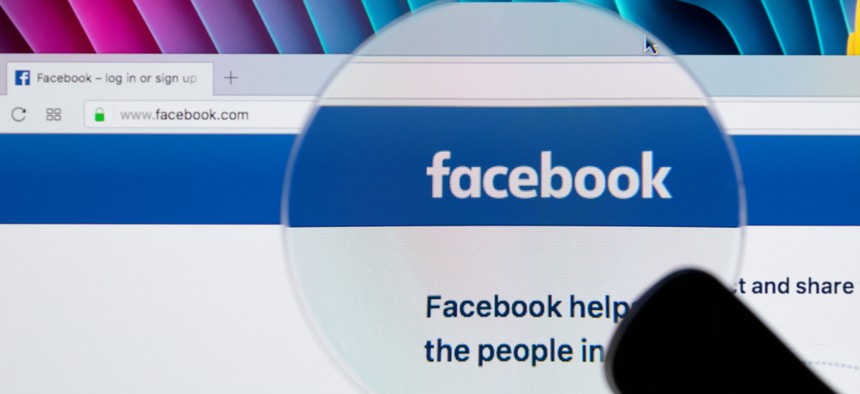I Scanned My Social Media Like a Potential Employer, and the Results Were Scary

BigTunaOnline/Shutterstock.com
Even a few curse words could be a problem for potential employers.
I don’t make a habit of swearing on Facebook, but sometimes when a post seems a bit flat, a cuss word or two can add just the right je ne sais quoi to bring it to life.
But my occasional potty mouth may be a problem for potential employers. According to a scan of my online presence from Brand Yourself, my online presence is a liability, and apparently my language is to blame. It’s not just the odd F-bomb, either, but the references to bestiality, orgies, and orgasms that seem to have crept into my posts and comments. (I had no idea I was so interesting.)
Brand Yourself’s reputation tool, introduced last month, is a logical outgrowth of its business, said CEO Patrick Ambron. While the company launched in 2009 to help business and users massage their search results, Ambron says it now focuses on helping job seekers find and repair embarrassing blunders in their online past. Employers are increasingly screening job candidates’ social media history for red flags, and it’s incumbent upon job seekers to scrub their posts of any blemishes, he said. Simply tightening the privacy restrictions may not help when some companies are demanding social media passwords from applicants.
“A lot of time, what (employers) find is someone who doesn’t understand social media,” Ambron said. “The people with the best presence online are the ones trained to have a good online presence.”
Clearly, my training is lacking. According to the site, my reputation score is 396 out of 800, or Very Poor. “Your online presence would likely fail an online background check,” the site warns me. Even more worrisome, the site tells me I could be forfeiting $3,146 in future annual earnings, based on a calculation of my profession and location. (The algorithm doesn’t seem to consider my chances of finding favor with a foul-mouthed employer).

While Google searches don’t turn up any dirt, there are 187 social media posts weighing against me. I’m entirely too careless in my choice of words when I share articles about the bestiality fantasies of politicians and sexual harassment in the workplace.
Every flagged post gets an assessment of its potential impact in the eyes of employers, and an option to excise it from your feed. The site also offers tools for juicing your personal brand (mine is Very Weak) by tweaking your profiles on Linked In, Twitter, Medium and the like. If you don’t want to do it, Brand Yourself will do it for a fee. (The basic service is free, but there’s lots of up-selling. For this article, Brand Yourself supplied me with a premium membership worth $99 a year).
The site also dinged me for posting 39 potentially inappropriate images, including many, many photos of myself and friends holding pints of beer (in my defense, I lived in London for four years). While the image-scanning software is distressingly accurate, it’s not perfect. It flagged a photo of my daughter with a glass of orange juice as containing a mixed drink, and a pair of elegant Chinese vases I photographed at Sotheby’s were labeled “drug bongs.” In another photo, my son was accused of flipping me the bird (he wasn’t). Fortunately, the site lets users remove innocent images from their dossier of shame.
But ultimately, it doesn’t matter whether I correct the record on Brand Yourself’s site if the software used by future employers find those images and draw their own, incorrect, conclusions. It doesn’t matter if the software is in error, or there’s a perfectly good explanation. There’s no appeals process when an HR department, looking to thin its applicant pool from a thousand to a few dozen, decides to use a questionable social media history as a filter.
The solution for the ultra-cautious is simply to take down any post or image, no matter now innocuous, and that’s a shame. When we purge our social media of photos of weddings and kids birthdays because of a stray champagne flute and glass of juice, we bowdlerize our own pasts. Social media, and Facebook particularly, has flourished in the last decade because it’s a rich document of our lives we share with our friends. Editing our pasts to meet the school-marmish standards of future employers risks turning our online lives into documents as bland and tasteless as a resume.





